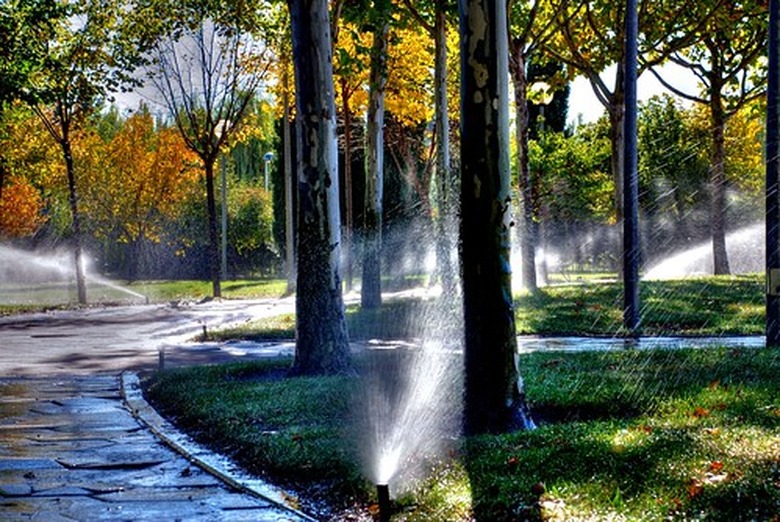Importance Of Water In Plant Life
Water is essential in the cultivation of plants and is necessary for food production, transfer of vitamins and nutrients and healthy foliage. Although the amount of water required by a given plant varies from species to species, the complete absence of this life-giving substance will eventually stunt growth and cause early death.
Growth
On the microscopic level, plants grow when the cells in their tissues divide. Without adequate amounts of water, this process produces new cells that are small and weak.
Strength
The stems and leaves of plants require water to remain firm and rigid. Stems will droop and leaves will wilt if they become too parched.
Food
Plants produce their own food, using the energy from sunlight to generate nutritious sugars. Without the hydrogen found in water, these sugars cannot be assembled and the plant will starve.
- Water is essential in the cultivation of plants and is necessary for food production, transfer of vitamins and nutrients and healthy foliage.
- Without the hydrogen found in water, these sugars cannot be assembled and the plant will starve.
Nutrients
The vitamins and minerals required for healthy plant growth cannot be absorbed from the soil unless they are dissolved in water.
Roots
Plants rely on deep, dense roots to absorb water and nutrients. Without enough moisture in the soil, roots cannot develop fully and plants will exhibit little or no growth.



